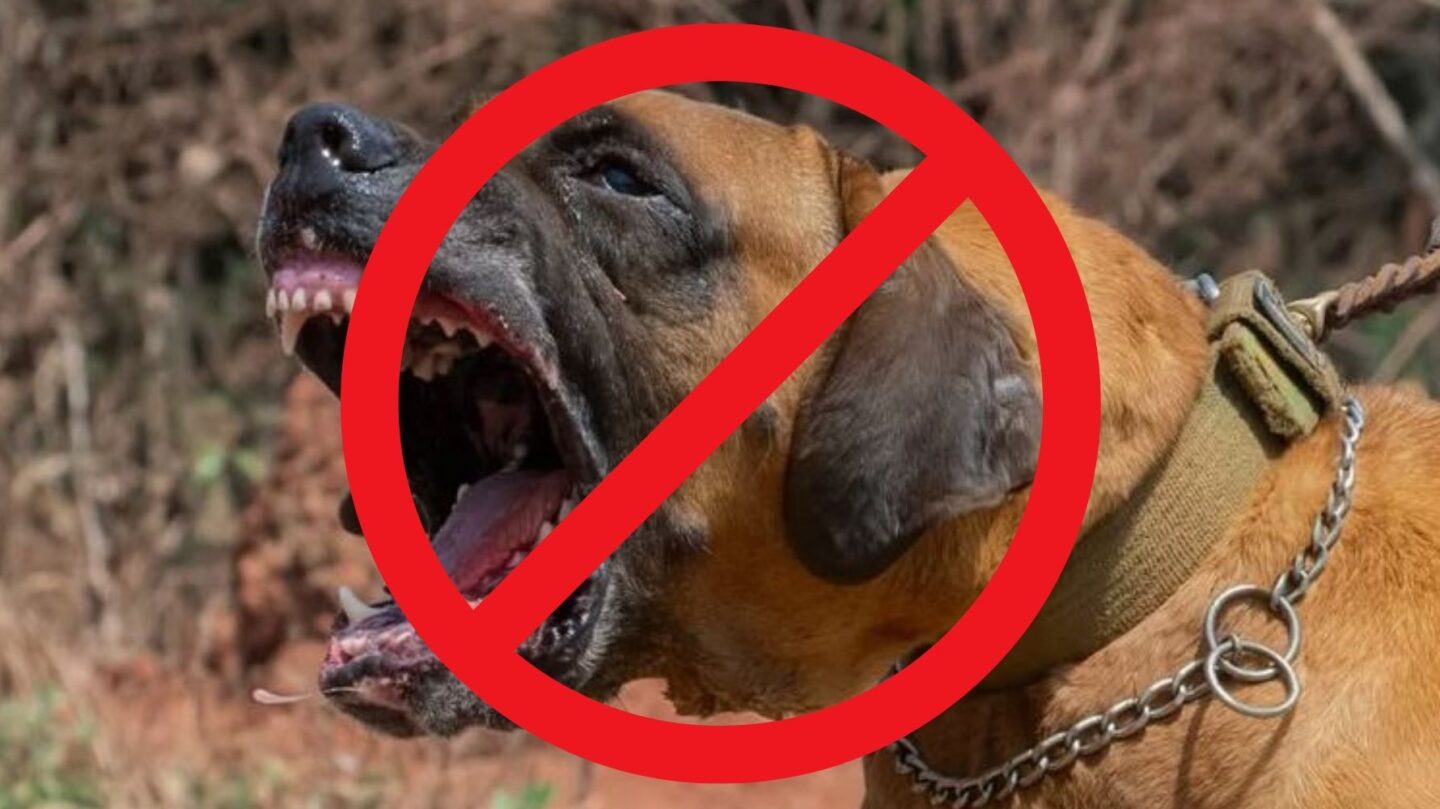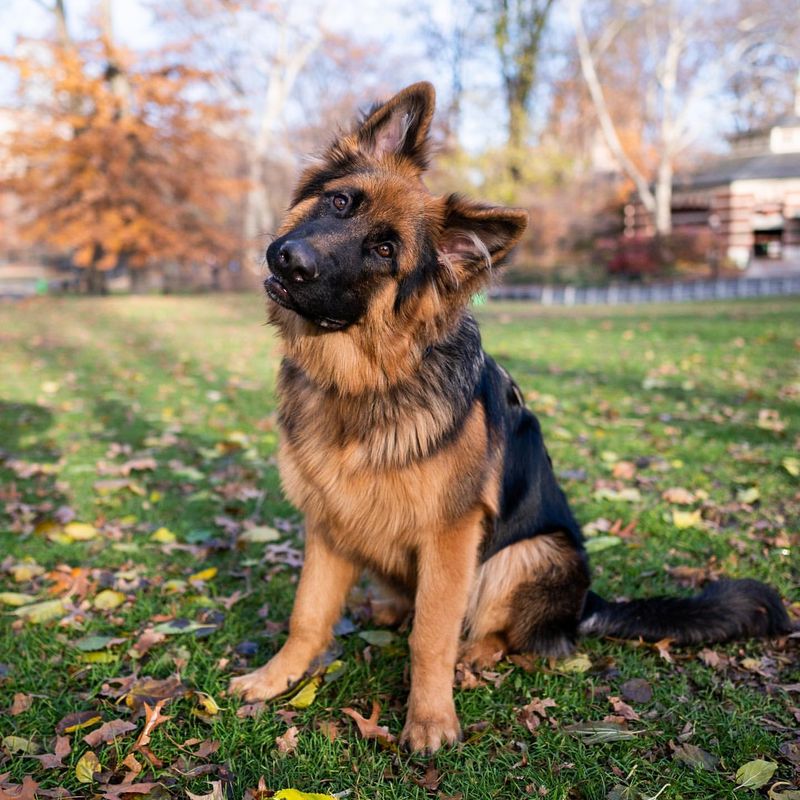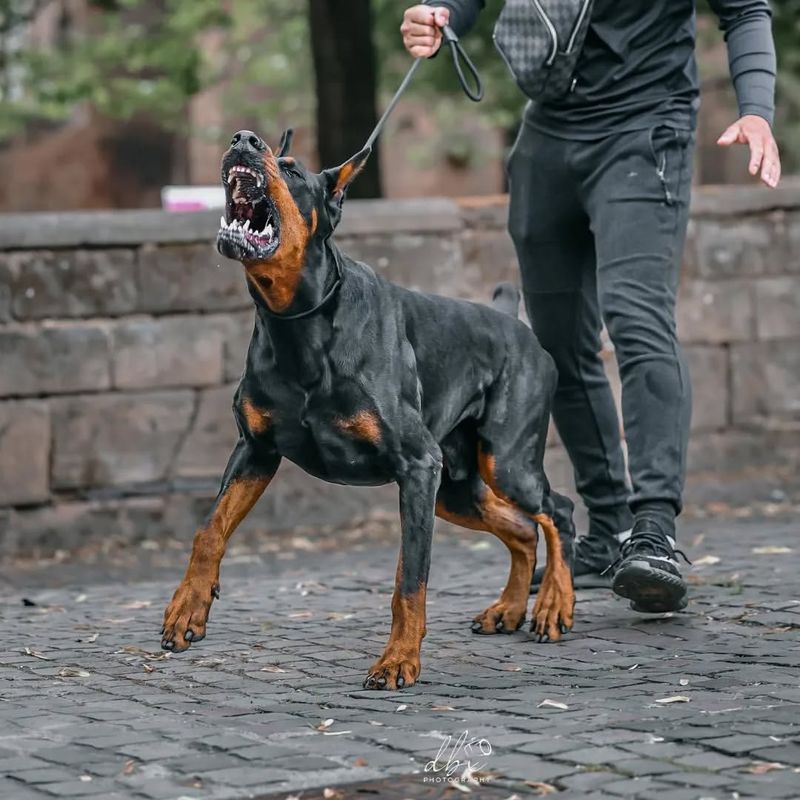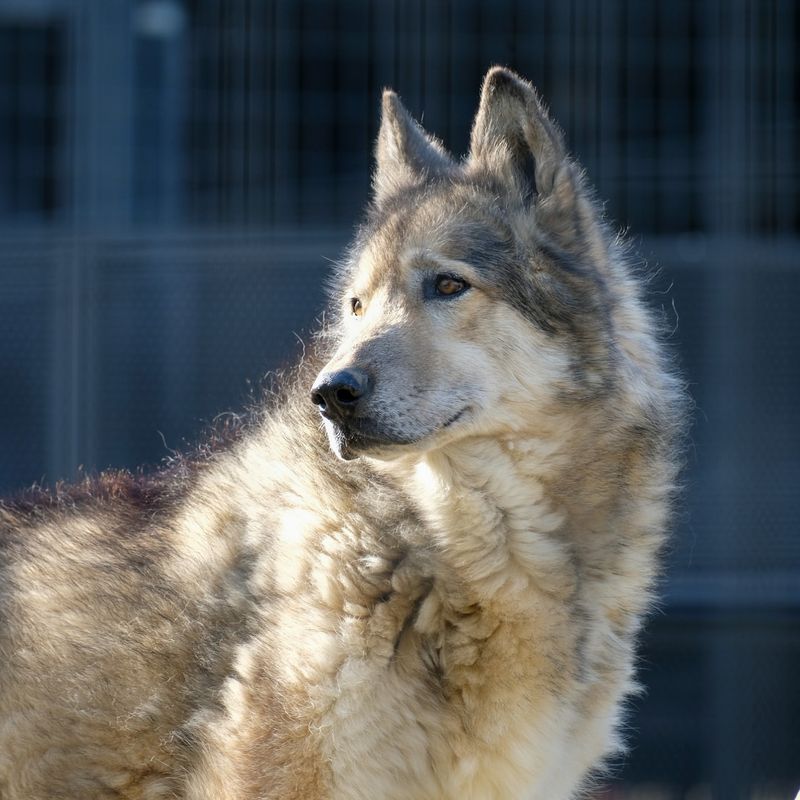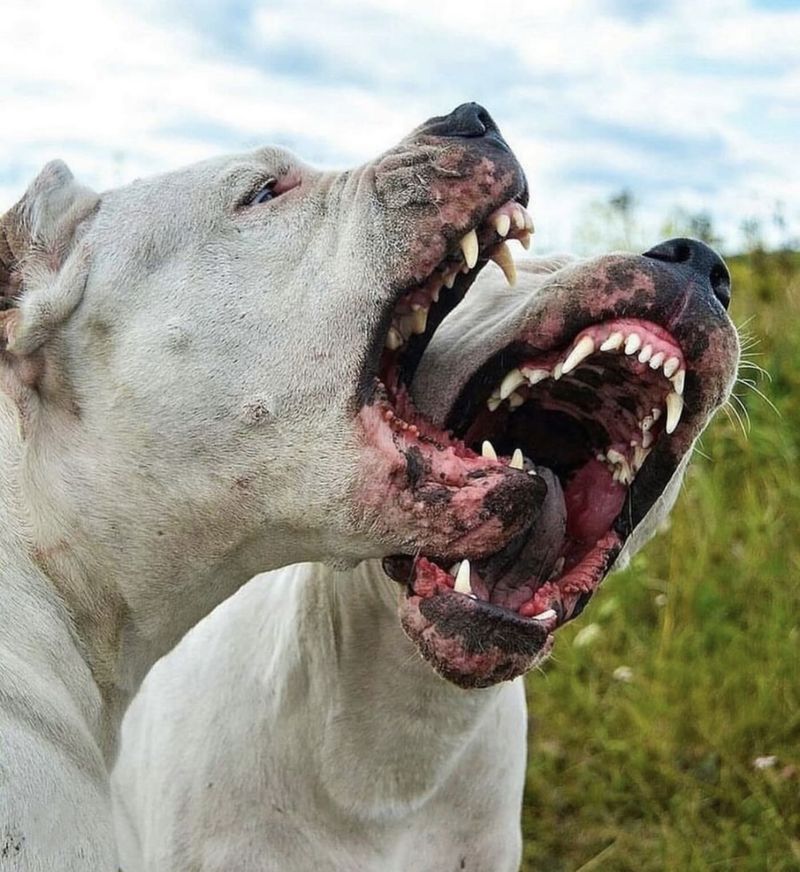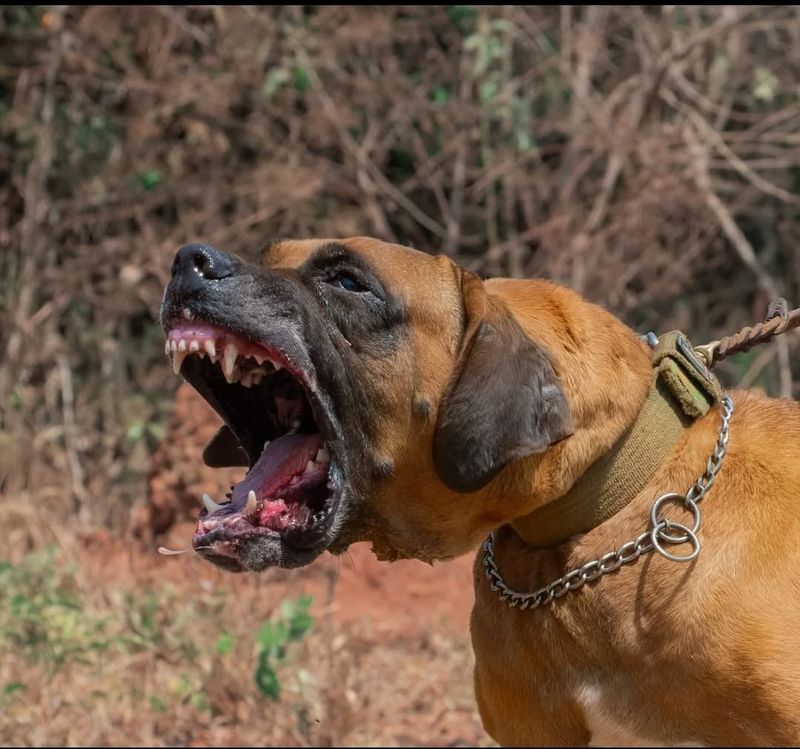In recent years, certain dog breeds have faced increasing scrutiny and bans across various regions in America. These bans are often due to perceptions of aggression or specific incidents, leading to breed-specific legislation. This blog post explores twelve dog breeds currently facing such bans, delving into the reasons behind these restrictions and the implications for dog owners. Through an engaging and informative tone, we aim to provide both awareness and insight into this pressing issue.
Pit Bull Terrier
Pit Bull Terriers are often at the forefront of breed-specific legislation due to their reputation for aggression. Despite many owners advocating for their loving and loyal nature, incidents involving aggression have led to increased bans.
Many cities and states have banned or restricted ownership, requiring muzzles or special licenses. This has sparked debates about the fairness of such laws, with many arguing that responsible ownership can mitigate risks.
The controversy continues as advocates push for evaluations based on individual behavior rather than breed stereotypes, emphasizing education over outright bans.
Rottweiler
Rottweilers are renowned for their strength and protective instincts, making them popular guard dogs. However, their imposing demeanor often leads to misconceptions, resulting in breed bans.
In certain regions, ownership comes with stringent regulations, including mandatory insurance or specific enclosures. Proponents of the breed argue these dogs are misunderstood, often victims of irresponsible breeding and handling.
Public education about proper training and socialization is key to showcasing their true temperament. Many advocate for assessments based on conduct rather than appearance to prevent unfair bans.
German Shepherd
German Shepherds are celebrated for their intelligence and versatility, often employed in police and military work. Despite their capabilities, some areas impose bans due to their perceived aggressive nature.
This breed requires consistent training and socialization to manage their protective traits. When improperly handled, they can pose challenges, leading to restrictions in various communities.
Advocates stress the importance of education and responsible ownership, pushing against generalized bans. Highlighting their positive roles in society, supporters argue for nuanced perspectives that recognize individual behavior.
Doberman Pinscher
Doberman Pinschers are known for their loyalty and keen protective instincts, traits that some perceive as aggressive. This has led to bans in certain areas, fueled by misconceptions and isolated incidents.
These dogs thrive on companionship and structured training. Without proper guidance, they may become unruly or anxious, exacerbating negative perceptions.
Efforts to lift bans focus on education about their true nature and the benefits of professional training. Highlighting the bond between Dobermans and their owners, advocates emphasize rewarding responsible pet ownership.
Alaskan Malamute
Alaskan Malamutes are powerful sled dogs with a strong prey drive, occasionally leading to bans due to challenges in urban settings. Their independent nature requires experienced handling to prevent behavioral issues.
In some places, these dogs face restrictions aimed at minimizing potential conflicts with smaller animals. Advocates for the breed emphasize their loyal and playful nature when adequately trained.
Promoting awareness about responsible pet ownership and understanding the breed’s needs can counteract unwarranted fears. These efforts aim to reduce bans based on misconceptions, fostering a better understanding of the breed.
Chow Chow
Chow Chows are distinctive with their lion-like appearance and independent demeanor, often misunderstood as aloof or aggressive. This misunderstanding leads to restrictions in some areas.
Their protective instincts can be mistaken for hostility, especially without proper socialization and training. Owners must invest in early socialization to prevent issues.
Breed advocates work to dispel myths, striving to educate the public about their true character. Emphasizing their loyalty and calm nature, they argue for policies based on individual assessment rather than stereotypes.
Wolf Hybrid
Wolf Hybrids, a mix of domestic dogs and wild wolves, often face bans due to unpredictable behavior. Their wild lineage contributes to challenges in domestic settings, raising safety concerns.
These canines require extensive training and socialization, often beyond the capacity of average pet owners. As a result, many regions impose bans, aimed at ensuring public safety.
Advocates argue for responsible ownership and specialized care to manage their needs. Educating the public on the unique challenges of owning hybrids can aid in reassessing blanket bans, fostering better understanding.
Presa Canario
Presa Canarios are known for their size and strength, often utilized as working dogs. Unfortunately, these traits can lead to perceptions of aggression, prompting bans in several locations.
Their imposing stature necessitates confident handling and consistent training. Without this, they may become difficult to control, reinforcing negative stereotypes.
Efforts to challenge bans focus on demonstrating their capability as loyal companions when properly managed. Highlighting the importance of training and responsible ownership, advocates seek to shift perceptions and promote fair treatment.
Dogo Argentino
Dogo Argentinos, bred for hunting, are often scrutinized due to their size and strength. Misunderstandings about their temperament have led to restrictions in various regions.
These dogs require firm and experienced training to ensure they are well-adjusted. Without this, they can be perceived as threats, resulting in bans.
Advocates emphasize their gentle and loyal nature with proper socialization. They argue for a shift in perception, urging for policies that focus on individual behavior rather than breed-specific bans.
American Bulldog
American Bulldogs are robust and athletic, often facing bans due to misconceptions about aggression. Their history as working dogs contributes to a strong protective instinct, sometimes misunderstood.
To thrive, they need consistent training and ample exercise, which can help mitigate potential behavioral issues. When neglected, their energy may be misdirected, leading to incidents.
Advocates push for awareness about their actual temperament, promoting responsible pet ownership. They emphasize the need for individual assessments to replace blanket bans, highlighting their potential as loving family members.
Akita Inu
Akita Inus are known for their loyalty and aloof demeanor, characteristics that can lead to misunderstandings. In some areas, these dogs face bans due to perceived aggression.
Their independent nature requires experienced handling to ensure proper socialization and training. Without it, they might exhibit challenging behaviors, reinforcing negative views.
Advocates argue for policies that assess dogs individually, rather than general breed bans. By showcasing their loyalty and calm presence, they seek to change perceptions and encourage responsible ownership.
Fila Brasileiro
Fila Brasileiros, known for their loyalty and strong protective instincts, often face bans due to their perceived aggression. Originating as working dogs, they require firm handling and socialization.
Their protective nature, while valuable in certain roles, can be misunderstood in domestic settings, leading to restrictions. Responsible ownership and proper training are essential to manage their instincts.
Advocates focus on educating about their true nature and potential as devoted companions. They push for assessments based on behavior rather than breed, striving to lift unfair bans and promote understanding.
